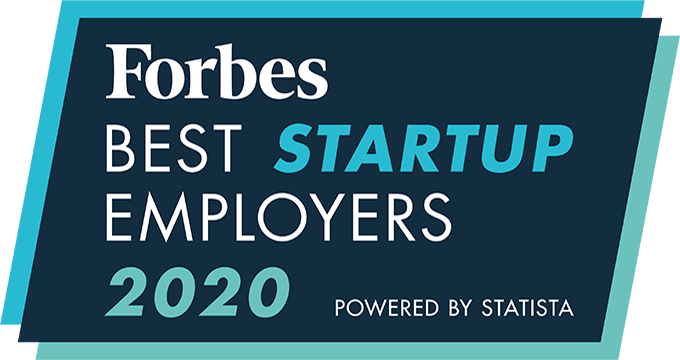Hiring the best people, aka top talent, will always be a challenge for SMBs when compared to large organizations. Along with the competitive market, a shrinking talent pool means less (and sometimes lesser) options. The difference between continuing to struggle and finally taking that next step towards becoming a thriving business lies in understanding how to compete for the best candidates in the challenging market.
Recruiting Challenges of Small Business
Recruiting and hiring is never easy. If you’re feeling pressure on the recruiting front, you aren’t alone.
Small businesses seem to face an uphill battle when compared to larger organizations with big budgets and ample resources.
Some of the challenges include:
- Employer Brand. There’s a certain amount of clout that comes with working for a successful business that everyone knows. For small businesses with little brand recognition, it’s challenging to compete with these bigger organizations.
- Inexperience with hiring. Small businesses don’t have as much experience with hiring as larger companies, which makes it difficult to perfect good hiring practices.
- Budget. Every candidate is looking for something different in an employer, but salary is often a chief concern. “Independently-operated businesses usually have a smaller profit margin than large companies. This can mean a smaller payroll budget, which can lead to lower-tier employees being paid less than they might be in a comparable position at a different company,” Boss Magazine explains. “Understandably, this arrangement can be a turnoff for potential new hires.”
- Lack of qualified talent. Because of the limited number of applicants for an opening in a small business, it’s sometimes hard to find qualified talent. Instead of getting specialists, you end up getting a bunch of general candidates who are average at everything, but skilled at nothing in particular. This either (a) prolongs the hiring process, or (b) results in poor hires that need to be replaced in the future.
However, just because something is a challenge, doesn’t mean you have to let it lead you astray.
As a small business owner, you can’t afford to let the challenges of recruiting and hiring intimidate you. You are your own company and you have to develop a strategic plan of approach that works within your specific constraints. Alongside that, you have to recognize the unique factors you face and stop looking at the hiring process through the same lens that larger companies use.
Here are a few hiring tips designed specifically for small businesses.
Try Assessment Tests
Lack of experience in hiring is one of the biggest challenges for small businesses. This leads to inappropriate assessments and unwise hiring decisions. One way you can avoid making these mistakes is by removing your own biases from the equation and relying on objective benchmarks, like assessment tests.
Assessments should be able to identify job suitability and candidate potential, and the reports should guide interviews by providing questions based on a candidate’s responses.
Create Your Own Talent Pipeline
According to research from Hewitt Associates, companies whose CEOs regularly review top talent average a 22% “Total Return to Shareholders” over a three-year period compared to -4% for companies whose CEOs don’t review top talent.
The same research study also found that companies that (1) define leadership competencies, (2) assess leadership behaviors, and (3) track turnover of top talent yield a much greater return on sales compared to businesses that don’t actively engage in these activities.
Are you paying attention to the talent you currently have in your organization?
Create a plan and build a talent pipeline, it’ll eliminate a lot of the recruiting struggles. The most cost-effective way to fill upper-level positions is to hire from within, but you can only do this if you’re actively cultivating this talent.
Tempt With Benefits
Research shows that non-financial benefits might be even more persuasive when it comes to hiring employees. When choosing between a higher-paying job and a lower-paying job, 88 percent of survey respondents say better insurance might make them choose the latter. Other persuasive benefits identified in the survey include more flexible hours (88%), more vacation time (80%), and work-from-home options (80%).
While you might not be able to pay the same salary as a large company with a big budget, you can still offer a competitive benefits package. Think about the candidates you’re targeting and try to come up with some options that you believe will appeal to them.
Aim for New Graduates
New graduates represent the sweet spot when it comes to affordable talent with lots of potential. They don’t yet have the experience to command large salaries but may be equally intelligent and skilled as someone who would. This gives small businesses a chance to nab top talent at a discounted rate.
Much like you want to build a talent pipeline within your organization, you should also try to build a pipeline into educational institutions.
Stop Limited Your Options
For small businesses in small towns and rural areas, limiting your options to local talent is a major mistake. It’s time that you open yourself up to the national job market.
Are you only advertising your job openings in the local job market?
You’d be surprised how many people are willing to make a move for a job. Furthermore, you might be able to offer remote positions that aren’t location specific. Think about this as you refine your recruiting strategy.
Never Settle for a Warm Body
It’s the unofficial name for the practice of hiring people just to fill a spot. If you’ve ever said something like, “We can’t afford to have that position open any longer, let’s just hire him,” you’ve settled for a warm body.
The problem with warm bodies is that they’re rarely the right hire. If you hire too many warm bodies, you’ll end up with high turnover, bad performance, and low employee satisfaction. Even if it means waiting a couple of months until the right person comes along, don’t settle for an average candidate.
Refresh Your Approach to Recruiting
Recruiting is crucial to the success of a business. While you have a temporary opening that needs to be filled, remember you’re really hiring for the future. Making the wrong hiring decision now could impact your business for years to come.
Most of the hiring advice you’ll run across is intended for businesses with large recruiting budgets. But as an SMB, you need to operate within your means and be creative with the few resources you have available to you. Refresh your approach and give your recruiting and hiring the attention it deserves.











